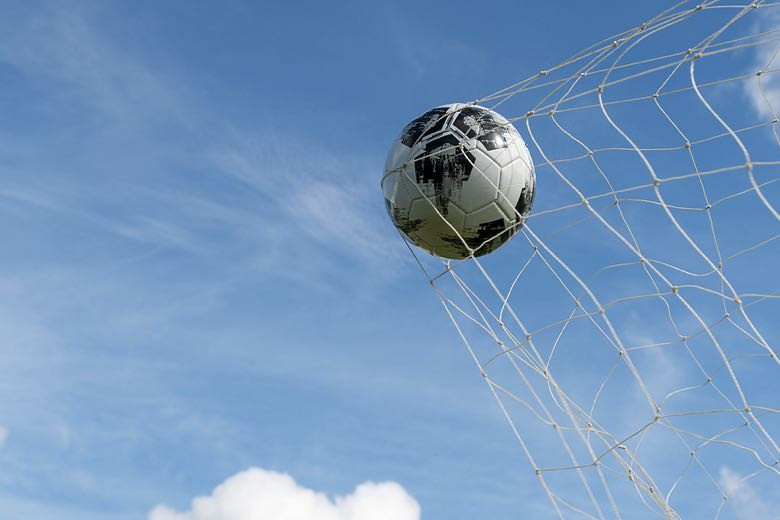Are you puzzled by the “OG” abbreviation popping up during football (soccer) games? This guide will clarify what it means, delve into the intricacies of own goals, explore notable records, and even touch on the tragic consequences that, in rare cases, have been associated with them. CAUHOI2025.UK.COM is your go-to source for comprehensive football knowledge.
Are you looking to understand common football terms? This article clarifies the meaning of “OG” in football, explains how own goals occur, highlights some unforgettable moments, and offers insights into the world of soccer terminology. Explore more definitions and analysis on CAUHOI2025.UK.COM. Essential soccer knowledge, explained simply.
1. The Meaning of “OG” in Football
In football, “OG” is a simple abbreviation that stands for own goal. It indicates when a player inadvertently scores a goal against their own team.
2. What is an Own Goal?
An own goal happens when a player causes the ball to enter their own net, resulting in a point for the opposing team. This can occur due to a variety of reasons, accidental miskicks, deflections, or simply being in the wrong place at the wrong time.
2.1. Common Scenarios for Own Goals
- Misjudged Passes: A player attempting to pass the ball back to their goalkeeper may misjudge the distance or power, resulting in the ball going into their own net.
- Defensive Clearances: In an attempt to clear the ball away from danger, a defender may inadvertently deflect the ball into their own goal.
- Accidental Deflections: A ball may deflect off a defender’s body and into their own goal, often leaving the player with no time to react.
 Soccer ball in net
Soccer ball in net
2.2. Rules Regarding Own Goals from Restarts
According to the Laws of the Game, an own goal cannot be scored directly from a restart. This includes:
- Kick-off
- Goal kick
- Drop ball
- Throw-in
- Corner kick
- Free kick
If a team puts the ball into their own net directly from any of these restarts, a corner kick is awarded to the opposing team instead.
3. Can a Goalkeeper Score an Own Goal?
Yes, a goalkeeper can score an own goal. However, the distinction lies in whether the initial shot was on target.
- Shot on Target: If the initial shot was heading towards the goal and the goalkeeper touches it before it goes in, the goal is awarded to the attacking player who took the shot.
- Shot Off Target: If the initial shot was going wide of the goal and the goalkeeper deflects it into their own net, it is considered an own goal. Also, if the ball hits the post or crossbar, bounces out, hits the goalkeeper and goes into the goal, then it will be deemed to be an own goal.
4. Own Goal Records
Own goal records are unwanted accolades in football, representing moments of misfortune for the players involved. Let’s examine some notable records and unfortunate milestones:
4.1. Martin Skrtel: Most Own Goals in a Premier League Season
Former Liverpool defender Martin Skrtel holds the record for the most own goals in a single Premier League season. He scored four own goals during the 2013/14 season.
4.2. Richard Dunne: Most Own Goals in Premier League History
Richard Dunne, an Irish defender, holds the unenviable record of scoring the most own goals in Premier League history. He accumulated a total of 10 own goals during his career.
 Richard Dunne
Richard Dunne
4.3. Jamie Carragher: Own Goals Per Goal
Jamie Carragher, another former Liverpool defender, has a unique statistic. He scored only three goals for his team but also scored seven own goals. This means he scored approximately 2.33 own goals for every goal he scored for his own team.
4.4. Stan van den Buys: Hat-Trick of Own Goals
In a match for Germinal Beerschot in Belgium, Stan van den Buys achieved the unfortunate feat of scoring a hat-trick of own goals. His team lost the match 3-2 to Anderlecht.
4.5. Pat Kruse: Quickest Own Goal
The quickest own goal on record is believed to have been scored by Pat Kruse of Torquay United against Cambridge United in 1977. He scored just eight seconds into the match.
5. The Most Bizarre Own Goals in History
Football history is filled with comical own goals. Here are a few of the most memorable:
5.1. Festus Baise: The Reverse Scorpion Kick
 Festus Baise
Festus Baise
In a match between Hong Kong FC and Sun Hei, Festus Baise of Sun Hei attempted a spectacular “reverse scorpion kick” to clear a cross. Instead, he sent the ball spiraling into his own net.
5.2. Chris Brass: The Painful Clearance
Chris Brass, playing for Darlington against Bury, attempted to clear the ball over his shoulder while facing his own goal. He kicked the ball into his own face, sending it looping into his own goal and breaking his nose in the process.
6. When Own Goals End in Tragedy
While own goals are often seen as comical or unfortunate, there have been instances where they have had tragic consequences.
6.1. Andres Escobar: The 1994 World Cup
Andrés Escobar, a Colombian defender, scored an own goal in a 1994 World Cup match against the United States. Colombia lost the match and was eventually eliminated from the tournament. Tragically, Escobar was murdered a week later in his home country. While the motive is debated, many believe it was related to the own goal and the impact it had on gambling syndicates. According to a report by ESPN, the incident highlighted the dark side of the sport, revealing the potential for extreme reactions and the high stakes involved in professional football.
7. Other Football Terminology
Understanding the meaning of “OG” (own goal) is just one piece of the puzzle when it comes to understanding the beautiful game. Here are some other common terms you might encounter:
- Foul: An action by a player that is deemed illegal by the referee.
- Offside: A rule that prevents attacking players from being too close to the opponent’s goal when the ball is passed to them.
- Penalty: A free kick awarded to the opposing team when a player commits a foul inside their own penalty area.
- Corner Kick: A free kick awarded to the attacking team when the ball goes out of bounds over the goal line after being last touched by a defending player.
- Free Kick: A kick awarded to a team after a foul committed by the opposition.
8. The Psychological Impact of Scoring an Own Goal
Scoring an own goal can have a significant psychological impact on a player. It can lead to feelings of:
- Embarrassment: The player may feel embarrassed and ashamed for making such a visible mistake.
- Guilt: They may feel guilty for letting their team down, especially if the own goal leads to a loss.
- Anxiety: The player may become anxious about making further mistakes and may lose confidence in their abilities.
Sports psychologists recommend strategies such as focusing on the next play, seeking support from teammates, and practicing mental resilience to help players overcome the negative psychological effects of scoring an own goal, according to research from the American Psychological Association.
9. Modern Examples of Costly Own Goals
Own goals continue to play a dramatic role in modern football. Here are some recent examples of costly own goals:
- Important Tournament Matches: During major tournaments like the World Cup or European Championship, an own goal can be the deciding factor that eliminates a team.
- League Title Deciders: In closely contested league seasons, an own goal can swing the momentum and ultimately determine which team wins the title.
- Relegation Battles: At the bottom of the league table, an own goal can seal a team’s fate and lead to their relegation to a lower division.
10. The Future of Own Goals: Can Technology Help?
With advancements in technology, there is potential for video assistant referees (VAR) to play a role in determining the validity of own goals. However, the use of VAR is primarily focused on identifying fouls or offsides that may have led to the own goal, rather than preventing the own goal itself. As technology continues to evolve, it remains to be seen whether new innovations can help reduce the frequency of own goals in the future.
11. FAQ: Understanding Own Goals in Football
Here are some frequently asked questions about own goals in football:
Q1: Does an own goal count as a shot on goal for the opposing team?
No, an own goal is not recorded as a shot on goal for the opposing team.
Q2: What happens if a player deliberately scores an own goal?
If a player deliberately scores an own goal, the referee can issue a yellow card for unsporting behavior.
Q3: Can a team win a match solely due to own goals by the opposition?
Yes, it is possible for a team to win a match solely due to own goals scored by the opposing team.
Q4: Are own goals more common in certain leagues or competitions?
There is no concrete evidence to suggest that own goals are more common in certain leagues or competitions.
Q5: How do coaches address the issue of own goals with their players?
Coaches typically emphasize the importance of concentration, communication, and composure in defensive situations to minimize the risk of own goals.
Q6: Can an own goal be overturned by VAR (Video Assistant Referee)?
VAR can only intervene if there was a clear and obvious error leading to the own goal, such as a foul or offside.
Q7: Is there a specific technique to avoid scoring own goals?
There is no specific technique, but players are generally advised to clear the ball away from the goal and avoid risky passes or clearances in their own penalty area.
Q8: What is the psychological impact on a player who scores multiple own goals?
Scoring multiple own goals can have a significant negative impact on a player’s confidence and mental well-being. Support from teammates, coaches, and sports psychologists is crucial in such cases.
Q9: Do own goals affect betting odds in football matches?
Yes, own goals can significantly affect betting odds, especially in matches where the score is close.
Q10: Are there any superstitions or rituals among players to avoid scoring own goals?
Some players may have personal superstitions or rituals, but there is no widely recognized practice to avoid scoring own goals.
12. Need More Football Insights?
Hopefully, this guide has clarified what “OG” means in football and provided a deeper understanding of own goals. For more football explanations, rules, and news, visit CAUHOI2025.UK.COM.
Do you have more questions about football terminology, rules, or history? Don’t hesitate to explore CauHoi2025.UK.COM for answers. Our team of experts provides clear, concise explanations to help you understand and enjoy the game even more. Contact us today at Equitable Life Building, 120 Broadway, New York, NY 10004, USA or call us at +1 (800) 555-0199.

